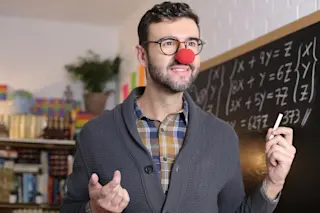This post was originally published at The American Scholar
. Gestures are simple enough. Right? A spontaneous but well-timed wave can emphasize an idea, brush aside a compliment, or point out a barely obscured bird’s nest to an obtuse friend. We use gestures to help our listeners follow along, and we make ourselves look warm and magnanimous in the process. But on the other hand—and when you’re talking about hands, the puns come furiously—sometimes gestures seem to have nothing to do with edifying or impressing. We gesture on the phone, and in the dark, and when we talk to ourselves. Blind people gesture to other blind people. A growing
of research suggests that we gesture in part for the cognitive benefits that it affords us. Tell us not to use the letter r, or challenge us to adopt a more obscure vocabulary, and our gesture use jumps.
What’s more, ...













